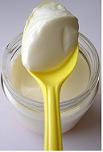Yogurt Restriction
Why doctors are being urged to hand out yogurt
 Restrictions lead firms to lobby doctors for blessing of products.
Restrictions lead firms to lobby doctors for blessing of products.
The EU has gotten serious about ads that promote the supposed health benefits of certain foods and drinks, from yogurts that improve intestinal flora to milk that meets the full Omega 3 requirement.
The European Food Safety Authority (EFSA) has received 4,637 applications from companies looking to promote the health benefits of their products.
Of the thousand applications that it has already analyzed, only 20 percent have passed the test of the scientists who examine them. In view of the tough stance taken by the European agency, some companies have opted to withdraw their applications. On April 15, Danone announced that it would temporarily withdraw its request for approval on claims for Actimel and Activia, its two star products.
This could signal the end of television commercials promoting the health benefits of foods and drinks. But it doesn't mean that the companies that make and bottle them have stopped trying to convince people of how healthy they are. Just as pharmaceutical firms pay visits to doctors to promote their drugs, some food companies have started going to health centers to convince doctors and nurses that their yogurt is better than that of their competitors.
For Roberto Sabrido, the director of the Spanish Food Safety Agency (AESAN), a body of the Health Ministry, this new process is "a logical consequence of the tendency to approximate diet and health."
This is one of the strategies of the French multinational Danone. According to one spokesperson for this company, "we don't make medical visits [the term used for medication sales calls], but some of our sales representatives do contact health professionals to explain the science behind our products."
The goal, says this spokesperson, is that if doctors are asked about their functional foods, they will be able to answer. In the case of Danone, the campaign has been targeted at "general practitioners and nurses."
This means that in recent years, pharmaceutical representatives who go to medical centers to promote their products haven't been the only callers. In addition to representatives of follow- on formula and baby food, health professionals have also received visits from water-bottling companies.
Javier Aranceta, president of the Spanish Society of Community Nutrition, talks about a "new form" of promotion that suggests fierce competition between the best-known brands of bottled water to "obtain pediatricians' approval." At one point, Solán de Cabras admitted that it had sales teams visiting pediatricians, but claims that for commercial reasons it has stopped doing this.
Is there any difference between brands of water? Isidro Vitoria, a pediatrician from Hospital La Fe in Valencia who has published studies on bottled waters and baby bottles, says that there is, but that it’s not significant.
After analyzing the mineral composition of 152 different brands, he found that 69 are suitable for baby bottles. The most famous brands appear in the top 51 with the highest score.
"They're not all the same, but many are suitable for children. I don’t recommend any specific brand, I just tell parents to go online and choose." Vitoria has also written a guide on the subject for the Spanish Pediatrics Association, which has preferred not to give its opinion for this report.
Vitoria may not recommend any specific brand of water, but other pediatricians do. And this is very interesting for the companies that sell it. "The pediatrician is a professional with absolute power of prescription and the companies know this," says Aranceta. If one of them recommends a brand for a baby, even if it's a brand of sticking plaster, the vast majority of parents will heed their advice.
Food and beverage companies have even been paying visits to the Health Ministry. According to Sabrido, this past March 26 he met with the president of the Spanish Medical Organization, which represents all the medical associations in the country. "Just as pharmaceutical companies can give information," so can food and beverage companies, but the agency will try to make sure "the information reaches doctors through AESAN and not just through companies."
For years now, the Health Ministry has been announcing, to no avail, that the laboratories will not be the only ones to target doctors from the public healthcare system with their campaigns (and sometimes allexpenses paid trips to Cancun, although this is occurring less and less).
Sabrido doesn't see anything wrong with this system of promoting foods through doctors: "The person receiving this information is a healthcare professional; it's not the same as giving confusing messages to the general public through advertising."
(Published by El País - May 3, 2010)